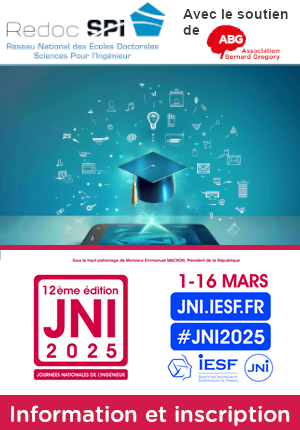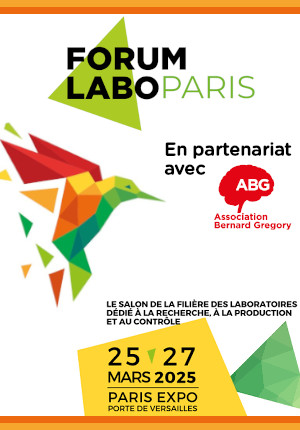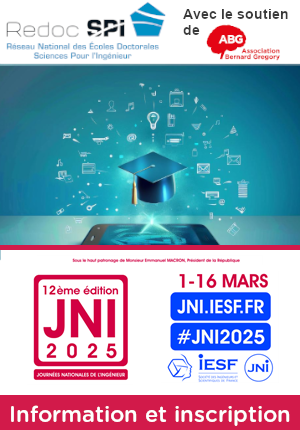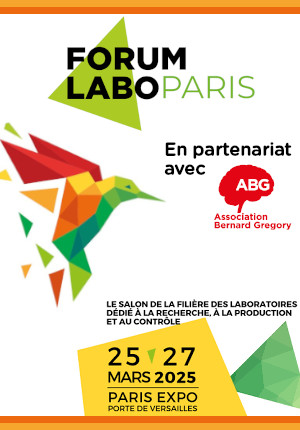In vivo functional characterization of RNA condensates in C. elegans germ cells // In vivo functional characterization of RNA condensates in C. elegans germ cells
|
ABG-128629
ADUM-61318 |
Sujet de Thèse | |
| 14/02/2025 |
Université de Bordeaux
Bordeaux cedex - France
In vivo functional characterization of RNA condensates in C. elegans germ cells // In vivo functional characterization of RNA condensates in C. elegans germ cells
- Biologie
RNA condensates, gene regulation, C. elegans , spermatogenesis , microfluidics, transcriptomics
RNA condensates , gene regulation, C. elegans, spermatogenesis, microfluidics, transcriptomics
RNA condensates , gene regulation, C. elegans, spermatogenesis, microfluidics, transcriptomics
Description du sujet
In recent years, membrane-less biomolecular condensates have been identified as ubiquitous cellular structures involved in diverse biological processes and human diseases. Notably, the formation of perinuclear condensates is a prominent hallmark of animal spermatogenesis, although their biological role is not yet fully understood.
This project aims at leveraging the power of C. elegans as a multicellular system to investigate, at multiple scales, the biological functions of P granules – perinuclear RNA-rich biomolecular condensates essential for animal fertility. We will develop cutting-edge methodologies, including high-resolution condensate transcriptomics to map the messenger RNA (mRNA) composition of P granules with high spatial and temporal resolution during spermatogenesis. By establishing an integrative approach to studying P granules in the dynamic context of a differentiating tissue, this project provides a unique in vivo framework to explore how mRNA composition relates to biomolecular condensate functions, uncovering fundamental mechanisms of cellular organization and gene regulation relevant to animal fertility
------------------------------------------------------------------------------------------------------------------------------------------------------------------------
------------------------------------------------------------------------------------------------------------------------------------------------------------------------
In recent years, membrane-less biomolecular condensates have been identified as ubiquitous cellular structures involved in diverse biological processes and human diseases. Notably, the formation of perinuclear condensates is a prominent hallmark of animal spermatogenesis, although their biological role is not yet fully understood.
This project aims at leveraging the power of C. elegans as a multicellular system to investigate, at multiple scales, the biological functions of P granules – perinuclear RNA-rich biomolecular condensates essential for animal fertility. We will develop cutting-edge methodologies, including high-resolution condensate transcriptomics to map the messenger RNA (mRNA) composition of P granules with high spatial and temporal resolution during spermatogenesis. By establishing an integrative approach to studying P granules in the dynamic context of a differentiating tissue, this project provides a unique in vivo framework to explore how mRNA composition relates to biomolecular condensate functions, uncovering fundamental mechanisms of cellular organization and gene regulation relevant to animal fertility
------------------------------------------------------------------------------------------------------------------------------------------------------------------------
------------------------------------------------------------------------------------------------------------------------------------------------------------------------
Début de la thèse : 01/10/2025
WEB : https://arna.cnrs.fr/RNABAnD_website/
This project aims at leveraging the power of C. elegans as a multicellular system to investigate, at multiple scales, the biological functions of P granules – perinuclear RNA-rich biomolecular condensates essential for animal fertility. We will develop cutting-edge methodologies, including high-resolution condensate transcriptomics to map the messenger RNA (mRNA) composition of P granules with high spatial and temporal resolution during spermatogenesis. By establishing an integrative approach to studying P granules in the dynamic context of a differentiating tissue, this project provides a unique in vivo framework to explore how mRNA composition relates to biomolecular condensate functions, uncovering fundamental mechanisms of cellular organization and gene regulation relevant to animal fertility
------------------------------------------------------------------------------------------------------------------------------------------------------------------------
------------------------------------------------------------------------------------------------------------------------------------------------------------------------
In recent years, membrane-less biomolecular condensates have been identified as ubiquitous cellular structures involved in diverse biological processes and human diseases. Notably, the formation of perinuclear condensates is a prominent hallmark of animal spermatogenesis, although their biological role is not yet fully understood.
This project aims at leveraging the power of C. elegans as a multicellular system to investigate, at multiple scales, the biological functions of P granules – perinuclear RNA-rich biomolecular condensates essential for animal fertility. We will develop cutting-edge methodologies, including high-resolution condensate transcriptomics to map the messenger RNA (mRNA) composition of P granules with high spatial and temporal resolution during spermatogenesis. By establishing an integrative approach to studying P granules in the dynamic context of a differentiating tissue, this project provides a unique in vivo framework to explore how mRNA composition relates to biomolecular condensate functions, uncovering fundamental mechanisms of cellular organization and gene regulation relevant to animal fertility
------------------------------------------------------------------------------------------------------------------------------------------------------------------------
------------------------------------------------------------------------------------------------------------------------------------------------------------------------
Début de la thèse : 01/10/2025
WEB : https://arna.cnrs.fr/RNABAnD_website/
Nature du financement
Précisions sur le financement
Appel à projets - UB PhD Scholarships
Présentation établissement et labo d'accueil
Université de Bordeaux
Etablissement délivrant le doctorat
Université de Bordeaux
Ecole doctorale
154 Sciences de la Vie et de la Santé
Profil du candidat
The project is suitable for candidates with a theoretical and experimental background in Genetics, and/or Cell Biology, and/or Development, and/or Biochemistry. Experience with the following methods is not necessary but will be a plus:
Basic techniques of molecular biology (PCR, cloning...)
RNA isolation
RNA-sequencing
Quantitative imaging
The language used in the laboratory for meetings, discussions, and scientific presentations is English. Therefore, a fluent oral and written understanding and usage of English are required. Previous experience with the model organism C. elegans is not necessary.
Sont éligibles uniquement des candidatures internationales, à savoir :
- des candidates ou candidats ayant obtenu (ou en cours d'obtention de) leur diplôme d'accès au doctorat (Master ou équivalent) dans un établissement à l'étranger
- des candidates ou candidats actuellement dans un Graduate Program de l'université de Bordeaux, inscrits en deuxième année de Master et ayant obtenu leur diplôme d'accès au Master dans un établissement à l'étranger
Seront prises en compte uniquement les candidatures soumises sur la plateforme suivante : https://aap.u-bordeaux.fr/ et avant le 17 mars à 23h59 (GMT Paris).
Un guide de candidature ainsi que la liste des documents à soumettre sont disponibles sur la plateforme.
Pour toute question, veuillez contacter : internationalisation.doctorat@u-bordeaux.fr
The project is suitable for candidates with a theoretical and experimental background in Genetics, and/or Cell Biology, and/or Development, and/or Biochemistry. Experience with the following methods is not necessary but will be a plus: Basic techniques of molecular biology (PCR, cloning...) RNA isolation RNA-sequencing Quantitative imaging The language used in the laboratory for meetings, discussions, and scientific presentations is English. Therefore, a fluent oral and written understanding and usage of English are required. Previous experience with the model organism C. elegans is not necessary. The UB PhD scholarship program is open to international candidates only, which means: - candidates holding (or currently enrolled in) a national level master's degree or another degree conferring master's status from a foreign institution - candidates currently in a Graduate Program, enrolled in second year of Master at the University of Bordeaux, and holding a degree from a foreign institution We will only consider applications submitted on the following platform: https://aap.u-bordeaux.fr/ and prior March 17, at 11:59pm (GMT Paris). A guide on how to apply as well as the list of documents to submit are available on the platform. For any question, please contact: internationalisation.doctorat@u-bordeaux.fr
The project is suitable for candidates with a theoretical and experimental background in Genetics, and/or Cell Biology, and/or Development, and/or Biochemistry. Experience with the following methods is not necessary but will be a plus: Basic techniques of molecular biology (PCR, cloning...) RNA isolation RNA-sequencing Quantitative imaging The language used in the laboratory for meetings, discussions, and scientific presentations is English. Therefore, a fluent oral and written understanding and usage of English are required. Previous experience with the model organism C. elegans is not necessary. The UB PhD scholarship program is open to international candidates only, which means: - candidates holding (or currently enrolled in) a national level master's degree or another degree conferring master's status from a foreign institution - candidates currently in a Graduate Program, enrolled in second year of Master at the University of Bordeaux, and holding a degree from a foreign institution We will only consider applications submitted on the following platform: https://aap.u-bordeaux.fr/ and prior March 17, at 11:59pm (GMT Paris). A guide on how to apply as well as the list of documents to submit are available on the platform. For any question, please contact: internationalisation.doctorat@u-bordeaux.fr
17/03/2025
Postuler
Fermer
Vous avez déjà un compte ?
Nouvel utilisateur ?
Besoin d'informations sur l'ABG ?
Vous souhaitez recevoir nos infolettres ?
Découvrez nos adhérents
 ADEME
ADEME  Groupe AFNOR - Association française de normalisation
Groupe AFNOR - Association française de normalisation  MabDesign
MabDesign  ONERA - The French Aerospace Lab
ONERA - The French Aerospace Lab  PhDOOC
PhDOOC  Ifremer
Ifremer  CASDEN
CASDEN  MabDesign
MabDesign  Aérocentre, Pôle d'excellence régional
Aérocentre, Pôle d'excellence régional  ANRT
ANRT  TotalEnergies
TotalEnergies  CESI
CESI  Généthon
Généthon  Institut Sup'biotech de Paris
Institut Sup'biotech de Paris  SUEZ
SUEZ  Nokia Bell Labs France
Nokia Bell Labs France  Tecknowmetrix
Tecknowmetrix  Laboratoire National de Métrologie et d'Essais - LNE
Laboratoire National de Métrologie et d'Essais - LNE  Institut de Radioprotection et de Sureté Nucléaire - IRSN - Siège
Institut de Radioprotection et de Sureté Nucléaire - IRSN - Siège










